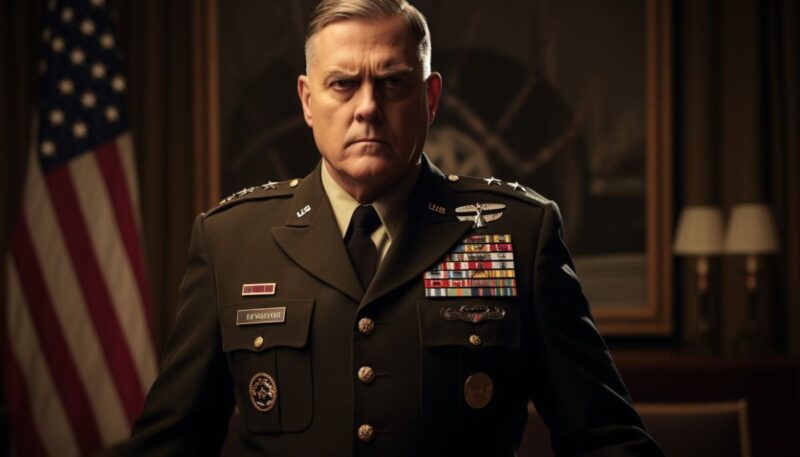
General Mark Milley, the Chairman of the Joint Chiefs of Staff, has come under scrutiny for his actions during the last 16 months of President Donald Trump’s administration. Serving as the nation’s highest-ranking military officer, Milley navigated through some of the most unprecedented and politically tumultuous times in American history.
The Precarious Balance: The Man and The Office
The Chairman of the Joint Chiefs of Staff is more than just a military position; it is a vocation of intricate responsibilities. Designated as the principal military advisor to the President, the Secretary of Defense, and the National Security Council, the role becomes especially consequential during politically volatile times. According to The Atlantic, General Milley took up the chairmanship in late 2019, entering a tenure characterized by an unprecedented level of civil-military dysfunction.
The Looming Existential Crisis: Steering Clear of Chaos
As highlighted in the report, Milley faced the onerous task of managing a sitting president plagued by “cognitive unfitness and moral derangement”. It was a situation rife with existential dangers to the American constitutional framework. Retired Marine General John Kelly elucidated that Milley had to “contain the impulses of people who wanted to use the United States military in very dangerous ways.
Constitutional Fealty vs. Presidential Authority
One of the most acute dilemmas Milley faced was the conflict between his sworn duty to uphold the Constitution and the unpredictability of a commander-in-chief potentially undermining it. Army Lieutenant General H.R. McMaster posed a daunting hypothetical: “What if the commander in chief is undermining the Constitution?”. It was not just a philosophical musing but a palpable fear within the corridors of American power.
Nuclear Safeguards and International Relations
Amid this chaos, Milley’s proactive measures included calling a meeting with top nuclear officers to ensure the safeguarding of the United States’ most lethal capabilities. Moreover, he reached out to his Chinese counterpart to ensure stability and prevent miscommunication that could lead to inadvertent conflict.
The Culture of the Military: Honor vs. Expediency
The Atlantic article also provides a disturbing account of Trump’s approach toward the military personnel, exemplified by contrasting instances involving Captain Luis Avila and Navy SEAL Eddie Gallagher. While Milley found Trump’s lack of empathy toward Avila, a wounded veteran, deplorable, he also had to deal with Trump’s glorification of Gallagher, a SEAL acquitted on multiple charges. The contrast reveals a struggle for the soul of the American military establishment.
Facing the Future: Lessons and Precautions
It is crucial to recognize that the general’s actions were not born out of political inclinations but were inspired by a need to protect the American democratic edifice. As The Atlantic concludes, if Trump returns to power, the fear is that individuals like Milley will not be at key posts to prevent unconstitutional acts1.
Conclusion: An Unsung Sentinel
General Mark Milley’s role as the Chairman of the Joint Chiefs of Staff, especially during the latter part of the Trump administration, provides us with a nuanced portrayal of a leader grappling with colossal ethical and constitutional challenges. His actions offer a glimpse into the intricate, often opaque, interplay of military service and constitutional obligation.
It’s a tale not just of an individual but of the American military’s role in preserving the country’s foundational values. As citizens, it behooves us to understand these complexities rather than dismissing them as mere political maneuvers. Understanding Milley’s stint is indispensable for gauging the robustness of American democratic institutions and for navigating the uncertain political landscapes that lie ahead.
